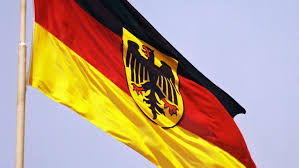
The latest figures from German authorities show that there was a sharp decline in December in the annual inflation in the country.
The new level; reached was lower than the target level for inflation set by the European Central Bank. The new inflation figures from the largest economy of the European Union comes at a time when the ECB brought to a close its bond purchase scheme that had been implemented by it to fight off the 2007-08 crisis and one which was launched four years ago. The data also comes amidst a slight slump in the global market.
According to data from the Federal Statistics Office, there was year-on-year rise of 1.7 per cent in the German consumer prices in December following a 2.2 per cent increase in the earlier month. The German consumer prices are so aligned that they are comparable with inflation data from other European Union countries.
According to a Reuters poll, economists suggested that the annual harmonised consumer price inflation (HICP) rate would slow to 1.9 per cent.
There was a rise of 0.4 per cent month on month in the HICP in Germany, compared with the forecast rise of 0.4 per cent.
The target inflation rate for the ECB for the euro zone as a whole is close to but below 2 per cent.
A significant slowdown in gains to energy prices, which are very volatile, also marked the weaker German annual inflation rate for December.
If the ECB does not believe they affect the medium-term outlook for price stability, it looks through changes in the inflation rate, the ECB says.
According to the latest data from Spain, there was a tear on tear rise of 1.2 per cent in the Spanish EU-harmonised consumer prices against a consensus forecast rise of 1.6 per cent and a previous reading of 1.7 per cent.
Earlier this month, ECB ended its €2.6 trillion bond-buying scheme but pledged that it would continue to announce stimulus policies and strategies for years to prop up the EU economy that has been struggling since the global economic crisis which has been compounded by political uncertainties and an unexpected slowdown.
While forecasting that there would be a slowdown in the global economy in 2019 and thereafter stabilizing, the ECB also expected prices to continue to rise.
The challenge for ECB is a weaker than expected growth reported even just weeks ago and the global and EUs’ economic outlook is facing deep uncertainties because of a global trade war, the increasing probabilities of a no deal Brexit and the stand off between the EU and the Italian government over the spending target in the proposed budget by the Italian government.
Earlier this month, the ECB pledged of keeping the rates of interest at record lows until next summer at least and no attempt was made by its president, Mario Draghi, to send any signals that the first hike in rates after the global economic crisis would only happen sometime in early 2020.
(Source:www.rte.ie)
The new level; reached was lower than the target level for inflation set by the European Central Bank. The new inflation figures from the largest economy of the European Union comes at a time when the ECB brought to a close its bond purchase scheme that had been implemented by it to fight off the 2007-08 crisis and one which was launched four years ago. The data also comes amidst a slight slump in the global market.
According to data from the Federal Statistics Office, there was year-on-year rise of 1.7 per cent in the German consumer prices in December following a 2.2 per cent increase in the earlier month. The German consumer prices are so aligned that they are comparable with inflation data from other European Union countries.
According to a Reuters poll, economists suggested that the annual harmonised consumer price inflation (HICP) rate would slow to 1.9 per cent.
There was a rise of 0.4 per cent month on month in the HICP in Germany, compared with the forecast rise of 0.4 per cent.
The target inflation rate for the ECB for the euro zone as a whole is close to but below 2 per cent.
A significant slowdown in gains to energy prices, which are very volatile, also marked the weaker German annual inflation rate for December.
If the ECB does not believe they affect the medium-term outlook for price stability, it looks through changes in the inflation rate, the ECB says.
According to the latest data from Spain, there was a tear on tear rise of 1.2 per cent in the Spanish EU-harmonised consumer prices against a consensus forecast rise of 1.6 per cent and a previous reading of 1.7 per cent.
Earlier this month, ECB ended its €2.6 trillion bond-buying scheme but pledged that it would continue to announce stimulus policies and strategies for years to prop up the EU economy that has been struggling since the global economic crisis which has been compounded by political uncertainties and an unexpected slowdown.
While forecasting that there would be a slowdown in the global economy in 2019 and thereafter stabilizing, the ECB also expected prices to continue to rise.
The challenge for ECB is a weaker than expected growth reported even just weeks ago and the global and EUs’ economic outlook is facing deep uncertainties because of a global trade war, the increasing probabilities of a no deal Brexit and the stand off between the EU and the Italian government over the spending target in the proposed budget by the Italian government.
Earlier this month, the ECB pledged of keeping the rates of interest at record lows until next summer at least and no attempt was made by its president, Mario Draghi, to send any signals that the first hike in rates after the global economic crisis would only happen sometime in early 2020.
(Source:www.rte.ie)





